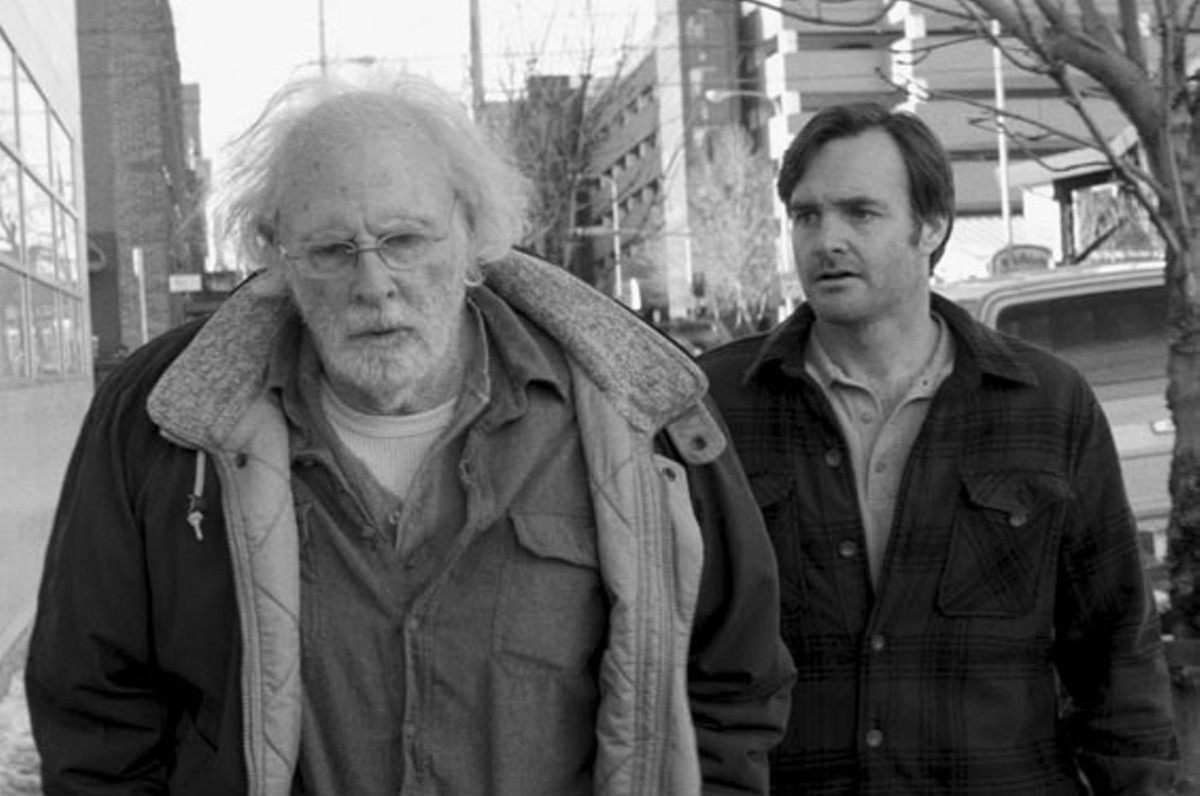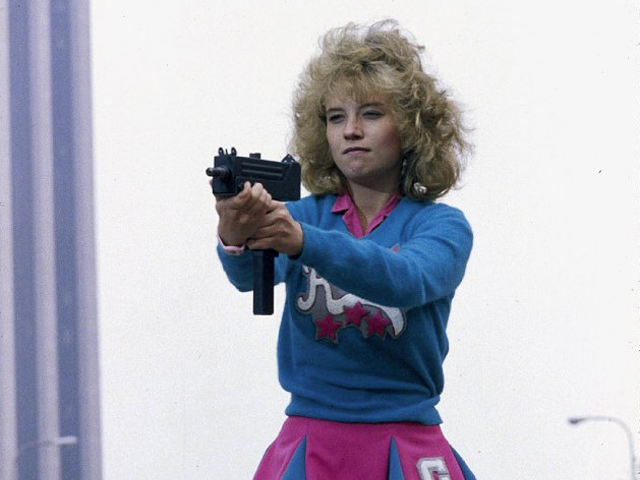In 1997, 87-year-old Richard Lusk flew from California to Florida to claim an $11 million prize he believed he'd won in a sweepstakes. The day after he returned home empty-handed, he had a stroke. Four months later, he bought a second plane ticket to Florida and stubbornly knocked on their doors again. After all, the letter he'd received screamed: "Richard Lusk, Final Results Are In, and They're Official: You're Our Newest $11 Million Winner!" Shrugged Lusk, "I didn't see how I could be wrong."
When your eyes are old, it's hard to read the fine print. Add boredom, gullibility and desperation to leave some cash to family when you die, and you're ripe for exploitation. In Alexander Payne's endearingly gruff Nebraska, ex-auto mechanic Woody Grant (Bruce Dern, with a wild, white puff of hair) is the sucker senior citizen. But our sympathies are with his exasperated sons, David and Ross (Will Forte and Bob Odenkirk), who must gingerly convince their father that he's a fool.
Naturally, he thinks they're morons for not immediately offering to drive him from Billings, Montana, to Lincoln, Nebraska, to claim his winning check. To keep Woody from walking alone — not that wife Kate (June Squibb) would mind being a widow — needier David reluctantly chauffeurs the old crank across three states, past Mount Rushmore ("It's just a bunch of rocks," Dad grumbles) and Dad's hick hometown, while trying and failing to steer the old alcoholic away from bars. Argues Woody, "Beer ain't drinking."
Another director would have made Woody's damnable insistence on trekking 849 miles a comedy. But Nebraska is the antidote to other family charmers about goofballs in matching sweaters. Payne even drains the film of color, shooting Woody's wishful odyssey in unsentimental black and white — the better to show the dirt in the snow and the lines in Dern's face.
Once Payne, too, dabbled in wish fulfillment — it's been nine years since Sideways, and I'm still cranky that Virginia Madsen settles for Paul Giamatti's whiny schlub — but his later films are sure-footed and pragmatic. In The Descendants, he shrugged at marriage while making Honolulu look as dingy as the plant aisle at Home Depot. Here, he takes the heartland — a stretch of America that Hollywood flatters as the place where a Reese Witherspoon type can really, you know, find herself — and strips the Norman Rockwell off of it like cheap aluminum siding.
On the surface, Nebraska sounds like a saccharine road-trip flick, the type that ends in a hug. David wishes it were. Before the two quiet men hit the freeway, he's embraced the big idea that this million-dollar folly gives Dad a reason to live. He gets it. And then the drive is spent watching David's own big-hug dreams deflate. Woody couldn't care less about family bonding. When David asks why he even bothered to marry and spawn two sons, Woody grunts, "I liked to screw, and your mother's a Catholic, so you figure it out." Instead, David — and we — learn more about his dad from other people, particularly during a cobbled-together Grant family reunion, a long detour that gives Ross and Kate time to grab a bus and rejoin the plot.
The Grants are hard to love. These terse farm folk don't believe the world offers anything more beautiful than a decent TV. But we may know them — I'm related to a few myself — and forgive Payne and screenwriter Bob Nelson for creating real people who look like clichés, including David's pig-faced cousins and money-hungry aunts. These bit players are excellent, and Dern is near-guaranteed an Oscar nod, if only by virtue of being openly old. But the loudest laughs come from Squibb's Kate, who bitterly resents her husband, her in-laws and anyone else she can blame for wasting her youth. In one cemetery sequence that hoots for awards attention, she merrily dismisses the dead Grants as a bunch of whores, bitches and drunks before hoisting her skirt over the grave of an ex-boyfriend and yelling, "See what you could have had, Keith, if you hadn't talked about wheat all the time?"
It's funny, scene-stealing stuff, but it's too sour to share the screen with Forte's subtle turn as the steamrollered son. The former Saturday Night Live star has defiled his share of cemeteries — all hail the scene where he boned Maya Rudolph's ghost on a tombstone in the criminally under-appreciated MacGruber — but Payne is the first director to trust him with real emotions. The gamble pays off. With his scared eyes and small lips, Forte looks like the resurrection of Buster Keaton — and like Keaton, he plays it simple, waiting for the audience to warm to him when we're ready.
That Payne trusts us, too, to find the heart in his chilly film feels like a gift as we begin the slog of a holiday season where Hollywood slobberingly begs us to feel. David never does get that hug, but he does get the dignity of learning to love people for who they are, not for who he wishes they'd be, while accepting that they can't always respond in ways he understands. It's true for families, and it's true for films. And Nebraska is worth making the effort.






